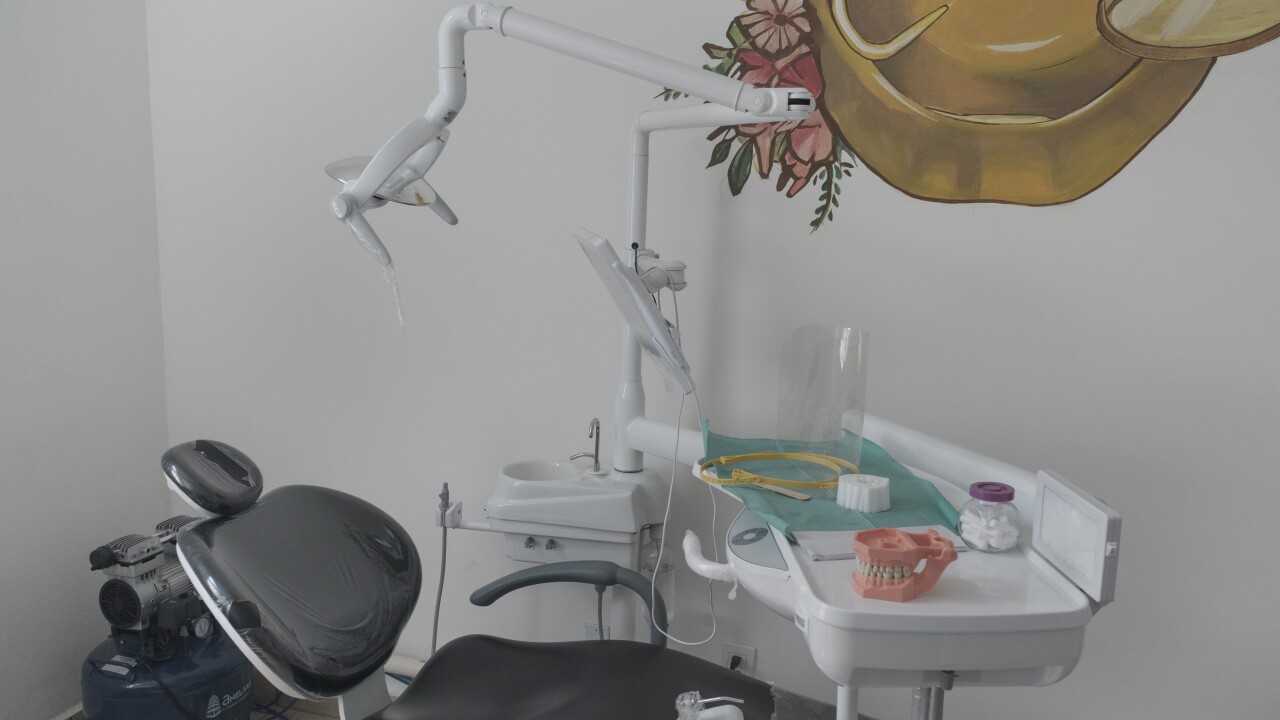Provident Bank of Cincinnati has begun offering its merchant customers a service that uses Visa U.S.A.'s networks to convert paper checks to electronic transactions at the point of sale.
Such conversion is still in its infancy, and Visa's system, which has been on the market for about three years, has a minuscule share compared with the automated clearing house.
But executives at Visa and Provident Financial Group Inc.'s chief subsidiary say the Visa system could be more profitable for banks and offer merchants better protection against fraud.
Provident is the third merchant-acquiring bank to deploy the Visa technology. The card association says five other banking companies - including Bank of America Corp., which is the largest Visa issuer and a top-10 acquirer - plan to do so. The other two banks already offering the service are First National Bank of Omaha and U.S. Bancorp's U.S. Bank.
With electronic conversion systems, merchants scan a customer's paper check at the register and the magnetic ink character recognition data are transmitted instantaneously for the bank to start processing. Usually the scanned check is handed back to the customer.
Jerry Meyer, the senior vice president of corporate services at Provident, said it chose Visa's service instead of one based on the ACH because of price and security. Because Visa is connected to about 90% of the nation's banks, its POS scanners can compare a purchase amount with a customer's demand deposit account - and reject the transaction if funds are insufficient. The ACH-based systems can only search a "negative database" to see if a customer represents a bad risk.
Both methods are better than the prevailing practices, Mr. Meyer said. Just scrawling a driver's license number on the check, as many merchants do, provides little fraud protection, he said. "Merchants today are basically flying blind."
Electronic POS clearing is much cheaper than processing a paper check, which typically costs a merchant $1.22, a Visa executive said. An ACH transaction can cost pennies; Provident, offering more security, plans to charge 13 to 18 cents.
Visa's POS service offers three levels of authorization:
- At the highest level, the check amount is compared to the account balance, and the bank guarantees the transaction. In the event of fraud - for example, if a customer withdraws all funds immediately after making a purchase - the bank is liable.
- At the second level, the same comparison is made but the bank makes no guarantee.
- The lowest level provides only electronic conversion, with no verification. It is meant for low-value transactions or trusted customers.
Banks will typically price these levels differently, said Dante Terrana, the director of business development for Visa's POS check service. No matter what level the merchant chooses, the converted transactions are routed through the same networks Visa uses for credit and debit transactions.Visa's service is now offered at 380 merchant locations in 44 states, Mr. Terrana said, and Visa is processing about 20,000 electronic check transactions per month. But that is just a tiny fraction of the market; point-of-sale check conversions totaled 10.2 million a month in the second quarter, the National Automated Clearing House Association estimates.
"We have just a small piece of the volume right now," Mr. Terrana said. "We are pleased with the acceptance of the service we have seen to date, but everybody would like to see it move faster."
Nancy Grant, the senior director of electronic check services at Nacha, said merchants - particularly smaller ones, with fewer employees to train - are beginning to see the advantages of electronic checks.
The ACH network has a huge head start, she said. It "touches every single financial institution, and there's no other network that can say that," Ms. Grant said. "Visa is a tiny player now."
Mr. Terrana acknowledged that the security benefits of Visa's system are mostly potential, not actual. Only a small percentage of banks have installed the technology needed to handle MICR information arriving over the credit card network, he said. Consequently, only 15% of the purchases made through Visa POS electronic check conversion systems today can be verified against DDA balances; the rest go through the ACH network.
Visa's system "is a much more efficient way for institutions to handle check payments," Mr. Terrana said, "but we do have some work to do."
He said Visa hopes to have a quarter of its banks hooked into the electronic check systems by September and a quarter more in each successive year.





